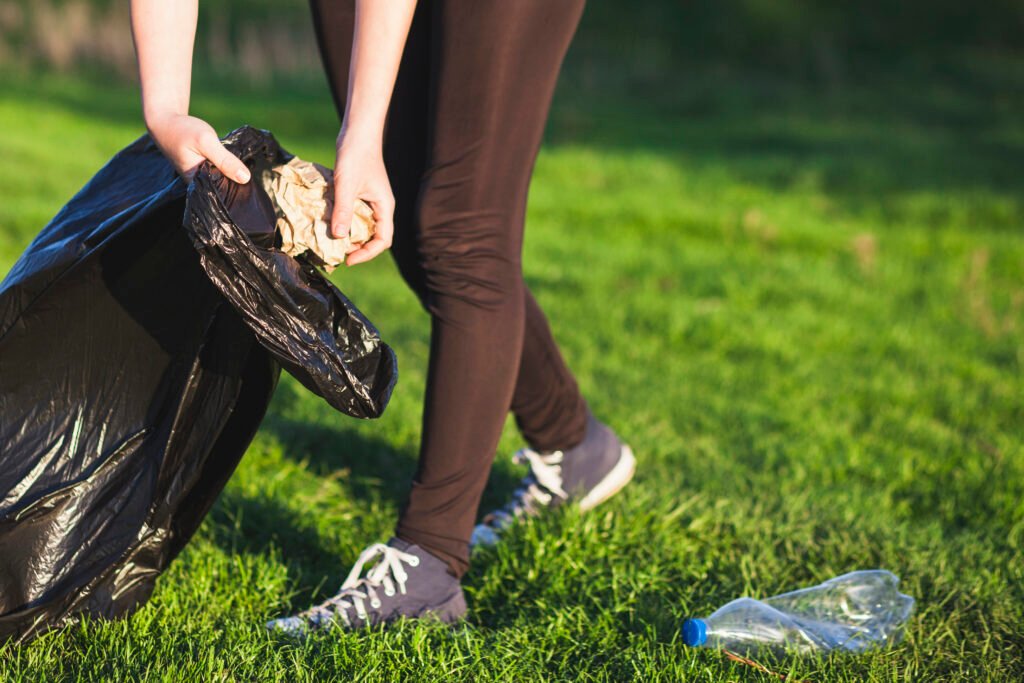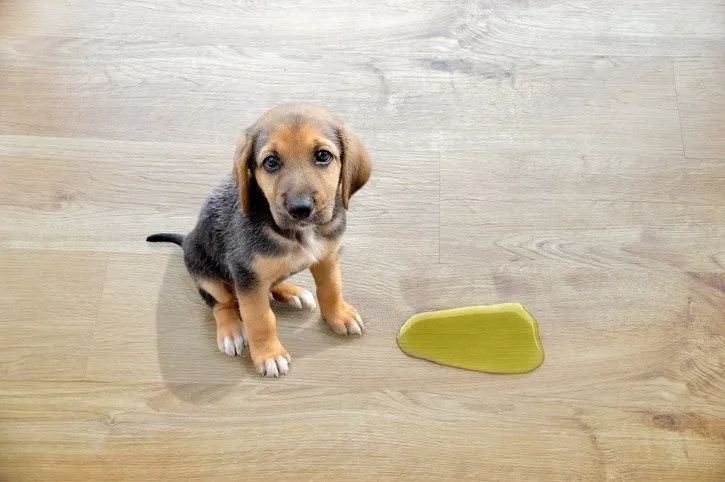How to Clean up wet dog poop might not be a job that you want to do, but if you are a dog owner, that’s something you may face. Sometimes, accidents happen because of an upset stomach, improper timing, or an accident. The best part? You can help to make the whole process of cleaning up wet dog poop easier and less stressful if you know how to approach it, which tools to use, and what techniques to apply.
This article will provide you with everything you need to know about cleaning up wet dog poop from different surfaces to odours you may encounter, to how you can reduce the chances of an accident in the future.
Understanding How to Clean Up Wet Dog Poop
Before diving into How to Clean up wet dog poop strategies, it’s essential to understand why your dog may have wet poop in the first place. Wet dog poop can indicate various issues, from dietary indiscretions to more severe health problems. Here’s a deeper look at the potential causes:
Common Causes of Wet Dog Poop
- Dietary Changes: A sudden switch in dog food can lead to gastrointestinal upset, resulting in watery stools.
- Intolerance or Allergies: Some dogs are sensitive to specific ingredients in their food, which can lead to loose stools.
- Parasites: Worms and other intestinal parasites can cause diarrhoea.
- Illness: Infections, pancreatitis, or other health issues can lead to wet poop.
- Stress and Anxiety: Stressful situations, like moving to a new home or changes in routine, can affect your dog’s digestive system.
- Spoiled Food or Foreign Objects: Eating spoiled food or foreign materials can upset a dog’s stomach, leading to diarrhoea.
Tools You’ll Need
How to Clean up wet dog poop easier and more effective, having the right tools on hand is crucial. Here’s a quick list of items that will come in handy:
- Disposable gloves for hygienic handling
- Paper towels or absorbent cloths
- Plastic bags for easy disposal
- A scooper or old spatula for outdoor messes
- Enzyme-based cleaner to break down organic stains and odours
- Antibacterial spray for disinfection
- Warm water and mild dish soap for rinsing
- Baking soda or white vinegar for odour control
- Pet-safe disinfectant (optional)
With these tools in your cleanup kit, you’ll be ready to tackle any accident, no matter where it happens.
1. Cleaning Wet Dog Poop on Carpet
Carpet accidents are common, but cleaning them properly can prevent stains and lingering smells. Follow these steps:
Pick up the solids gently.
Use gloves and a paper towel to scoop up as much of the poop as possible without pressing it further into the carpet fibres. Be gentle to avoid spreading the mess.
Blot the area
Take a dry paper towel or an absorbent cloth and gently blot the spot to soak up moisture. Never scrub, as this will push the mess deeper.
Use an enzyme-based cleaner.
Spray an enzyme cleaner directly on the stain. These products break down the organic matter and eliminate smells at their source. Allow it to sit for the time recommended on the label.
Blot again and rinse
After the cleaner has worked magic, rinse the area with a clean cloth dampened with soapy water. Blot dry with a towel, and if necessary, repeat.
Tackle lingering odors
Sprinkle baking soda over the cleaned area and leave it overnight—vacuum thoroughly the next day.
2. Cleaning Wet Dog Poop on Hard Floors (Tile, Wood, Vinyl)
Hard floors are easier to clean, but they still need proper attention to eliminate bacteria. Here’s what to do:
- Pick up the mess
Use gloves and a paper towel to remove the majority of the poop. If needed, use a scooper or spatula to scrape it off. - Wipe and rinse the area
Dampen a cloth with soapy water and wipe away any leftover residue. Avoid using excessive water on wood floors, as this can damage them. - Disinfect the surface
Spray an antibacterial cleaner or a vinegar-water solution (1 part vinegar to 3 parts water). Wipe it dry with a clean cloth or paper towel. - Final touch
Buff the floor dry to prevent streaks or water damage, especially on wood or laminate surfaces.
3. Cleaning Wet Dog Poop on Grass
Outdoor messes are inevitable for dog owners, but cleaning them efficiently keeps your yard safe and pleasant.
- Scoop up the poop
Use a scooper, plastic bag, or old spatula to remove as much of the poop as possible. - Harden wet spots (if needed)
If the poop is too runny, sprinkle baking soda or sawdust on the area to firm it up before scooping. - Rinse with water
Spray the grass with a hose to wash away any remaining residue. For extra cleanliness, apply a pet-safe disinfectant.

4. Cleaning Wet Dog Poop on Furniture
Accidents on furniture require extra care to prevent damage. Here’s how to clean them up:
- Remove the solids
Use paper towels or gloves to scoop up as much as you can without pressing it into the fabric. - Blot the stain
Gently blot the area with a damp cloth to remove moisture. Avoid scrubbing. - Apply upholstery cleaner
Use a fabric-safe enzyme cleaner or mild dish soap solution to treat the stain. Blot it in and leave it to sit for 5-10 minutes. - Rinse carefully
Dab the area with a clean damp cloth to rinse out the cleaner. Repeat until the spot is clean. - Dry thoroughly
Use a fan or hairdryer on the lowest setting to ensure the area is completely dry to prevent mold.
Tips for Managing Odors and Stubborn Stains
Sometimes, bad smells or stains can linger even after you’ve cleaned up. Here are some additional tips to keep everything fresh:
- Baking soda works wonders for absorbing odours. Please leave it in the cleaned area for a few hours before vacuuming.
- White vinegar solutions (equal parts vinegar and water) can neutralize stubborn smells, especially on hard surfaces.
- Hydrogen peroxide mixed with dish soap is excellent for light-coloured carpets or upholstery but test it first on a hidden spot to ensure it doesn’t bleach the fabric.
- Steam cleaning carpets or soft surfaces can give them a deeper clean in case of repeat accidents.
Common Mistakes to Avoid
Even with good intentions, some cleaning methods can make things worse. Avoid these common mistakes:
- Scrubbing too hard spreads the poop and pushes it further into the surface. Always blot instead.
- Using the wrong cleaner can damage certain materials or fail to eliminate odours. Stick to enzyme-based cleaners designed for pet messes.
- Ignoring the accident too long allows stains to set and bacteria to multiply, making cleanup harder.
While cleaning up after your dog is a necessary task, implementing preventative measures can help reduce the frequency of wet poop incidents in the first place.
Improve Your Dog’s Diet
- Quality Dog Food:
- Invest in high-quality dog food that suits your pet’s breed, age, and health needs. A proper diet will help maintain a firm stool.
- Introduce New Foods Gradually:
- When changing your dog’s diet, do so gradually over 7-10 days to avoid gastrointestinal upset.
- Watch for Allergens:
- Keep track of your dog’s food and any reactions they may have to potential allergens like grains or specific proteins.
Regular Vet Check-Ups
Regular veterinary visits can catch potential health issues before they become serious. Routine check-ups and vaccinations can help maintain your dog’s overall health and that of their digestive system.
Eco-Friendly Cleanup Tips
Cleaning up after your dog doesn’t have to be unhealthy for the environment. Here are a few eco-friendly tips:
- Use Biodegradable Bags: Many brands offer poop bags made from plant-based materials that break down more easily than traditional plastic.
- Compostable Options: Some pet owners opt for a dog waste composting system to break down dog waste safely.
- Natural Cleaners: Use vinegar and baking soda as natural cleaning agents instead of harsh chemicals whenever possible.
Conclusion
How to Clean up wet dog poop can be an unpleasant yet crucial responsibility for dog owners. You can manage these messes efficiently and effectively by following the steps outlined in this guide and using proper cleaning supplies. Remember that addressing the root causes of wet poop, preventive health measures, and maintaining a clean environment can significantly reduce the likelihood of future incidents. Always check your pet’s health, and consult your veterinarian if you notice any concerning symptoms.
